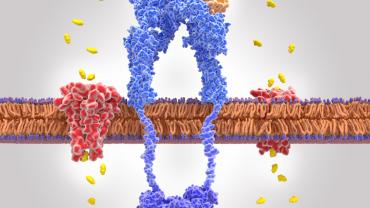
Selenium is a trace element that is critical to many processes within the human body. Research indicates that it can help support antioxidative status and thyroid health. Trace elements, such as selenium, support health through many biochemical functions. Trace elements can act as cofactors for enzymatic reactions, assist in cell signaling, and help stabilize cellular structures.
Evidence indicates that the pathogenesis of certain cardiometabolic conditions, including type 2 diabetes mellitus (T2DM), may be influenced by oxidative stress. Selenium has been shown to help protect against oxidative damage by helping to increase superoxide dismutase and glutathione peroxidase levels. Trace elements may also play an important role in healthy glucose metabolism by helping to transport glucose across cell membranes and helping to modulate insulin sensitivity. Selenate, a form of selenium, has been shown to help maintain blood sugar homeostasis by acting as an insulin mimetic. Selenoprotein P has also been shown to help support pancreatic β-cell function through several different pathways. It can help inhibit stress-induced degradation of nascent granules, help prevent ferroptosis, and help maintain glutathione peroxidase 4.
Low selenium levels have been associated with an increased risk of certain metabolic disorders. A clinical study involving more than 7,000 individuals over two decades found that participants with the highest levels of selenium had a 24% lower risk of developing T2DM. Recent research has explored the potential role of selenium supplementation in relation to glucose metabolism.
A systematic review and meta-analysis by Ouyang and colleagues explored recent literature regarding selenium supplementation as a potential support for healthy glucose metabolism and other parameters related to cardiometabolic diseases. This study included 10 randomized controlled trials involving more than 500 participants with treatment periods between 4 and 24 weeks.
Ouyang and colleagues reported that selenium supplementation significantly reduced serum insulin levels and increased high-density lipoprotein cholesterol (HDL-C). Nonsignificant improvements were observed regarding homeostatic model assessment of insulin resistance, fasting plasma glucose (FPG), and hemoglobin A1C. Of note, the effective results of selenium on FPG were reported as less clear. Although the study by Ouyang and colleagues indicated improvements in HDL-C, other parameters related to the impact of selenium on lipid metabolism were not definitive. More studies are needed before clinical conclusions can be made, particularly in human populations.
The trace element selenium may support many aspects of human health. It has been shown to support thyroid function and antioxidative status. Current research indicates that it may also support certain aspects of metabolic health.
By Colleen Ambrose, ND, MAT